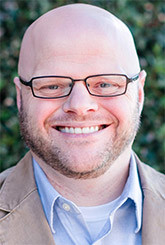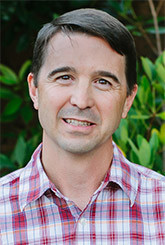The South Carolina Baptist Convention is partnering with The Church at Cherrydale in Greenville in support of an original discipleship model that is designed to develop and multiply church leadership.
The Renewal Leadership Institute process begins with identifying existing leaders from within the church, provides intentional discipleship under the leadership of mentors, and integrates these new leaders within the church setting. Over the course of a roughly two-year internship, the participants may also pursue seminary education and receive assistance in being placed on the mission field or in a church-plant setting.
“God is using the Renewal Leadership Institute to propel the church forward in our disciple-making mission,” said Matt Rogers, pastor of The Church at Cherrydale and creator of RLI. “So many young men and women genuinely desire to give their lives away to be used by God in strategic mission, but they simply do not know how. We are seeking to provide a catalyst for the development of leadership through the strategic teaching provided by the ‘Aspire’ leadership manual, mentorship with a pastor or ministry leader, and intentional service in an area of giftedness.”
Partnership is key throughout the process, says James Nugent, RLI director and church health and multiplication strategy partner with the South Carolina Baptist Convention. The Church at Cherrydale partners with other churches to mentor and develop the leaders and to identify places of service.
“We are a relational church that seeks to partner with churches in our area,” Nugent said. “One-third to one-half of participants are in partnership with other churches. We are working together to develop leaders and equip pastors to develop the next generation of leaders.”
Rogers said his church is seeing “church planters trained, revitalizing pastors equipped, and missionaries sent.”
“In addition, we are seeing many men and women trained for a lifetime of disciple-making [work] as faithful school teachers, lawyers, computer programmers, and a host of other professions that can be tools for the missionary advance of the church,” he said.
RLI is open to men and women who are called into specific areas of ministry and those who desire deeper discipleship. The participants are evaluated according to their ministry calling, passions and gifts. They may be identified as potential leaders starting in high school.
The first year of RLI is called the Year One Internship, and participants are referred to as interns. During this year, interns “gain a firm understanding of gospel, ministry and missions,” as they are required to participate in weekly group learning sessions, academic assignments, mentor meetings, and service within a local church. Interns are plugged into a variety of church ministries that include missions, small groups, web management, research and curriculum development.
The second year of RLI is called Year Two Residency, and participants are referred to as residents. Through an application process, residents may gain more concentrated time and experience in a particular field of ministry or move forward with plans for church planting. Residents commit to a biweekly learning forum to “develop their ability to proclaim, lead and build within ministry” while completing ongoing assignments, continuing to meet with their mentor, and serving in a local church.
In his role as RLI director, Nugent recruits, helps participants navigate the next steps to be effective in their service, assists with preparing mentors, and secures funding. He described how RLI is working with a North Greenville University student who will officially enroll following graduation in order to pursue his calling to collegiate ministry.
“He is a sophomore this year and is being discipled by an adult ministry leader once a week,” Nugent said. “We are walking alongside of him, helping to connect him with collegiate ministry opportunities to serve. In his senior year, we will invite him to RLI and give him intentional support to develop him into being prepared for collegiate ministry.”
Support options exist beyond year two, including a residency extension to continue a participant’s preparation for ministry through the local church. Participants are given the opportunity to pursue advanced degrees through Southern Baptist Convention seminaries, which are partnering with RLI to assist with distance-learning opportunities that enable participants to remain in the local church context. RLI is also partnering with the North American Mission Board to connect participants with its existing missions and ministry needs.
The discipleship principles in RLI aren’t new. But for the church or church staff member who does not know where to start in raising prepared disciples within the church, RLI can offer a carefully thought-out and planned process for individuals and churches to follow.
“Pastors and church leaders are to take their God-given task seriously,” said Rogers. “In light of Ephesians 4, this means that we must seek to ‘equip the saints for the work of the ministry.’ We have to do more than simply say, ‘You should make disciples,’ or ‘You should read your Bible more.’ Rather, we should work to develop tools and resources that make it possible for the average church member to do these very things. Without a plan in place, most of those who fill our churches each week feel ill-equipped and incapable of doing the things that the Bible says should be normative for a disciple of Jesus.”
Nine South Carolina Baptist churches partnered with RLI in 2014, utilizing the structure and content of RLI in a customized leadership development process specific to their ministry needs and goals. RLI reported having 65 enrolled participants last year, and one partner church has launched its own leadership development track similar to RLI. Two churches have been planted since RLI began roughly two years ago.
Scott Shields, Upstate church-planting catalyst with the South Carolina Baptist Convention, said RLI is just the sort of intentional discipleship and church-planting model he has been praying would be made accessible to churches.
“Through RLI, The Church at Cherrydale is tapping into all age groups and levels of the church with ministry and discipleship development,” he said. “We have a core belief of the biblical model that churches plant churches, and in order to reproduce healthy churches, we have to have healthy models. I would love to see other churches reproduce and invest effectively in raising up leaders.”
Nugent reported that RLI plans to plant one new church every 12 to 18 months, and is working toward become reproducible in ethnic churches. RLI is actively pursuing other partners in ministry, including schools.
“God is stirring within the hearts of men to be trained well for pastoral care,” Nugent said. “They are valuing discipleship and mentoring more than just knowledge, and they want to learn from others who are a few years ahead of them in ministry. God is opening doors for leadership development in other areas of the state. We realize we need to do all of this well if we are to plant healthy churches that are going to last.”
To the church interested in pursuing RLI or another intentional discipleship process, Nugent recommends that it first pray for and identify potential leaders within the church. He also notes that replication involves more than just one church, so partnership is another key element.
A wide range of RLI services are available to churches. Rogers has authored two books, “Seven Arrows: Aiming Bible Readers in the Right Direction,” and “Aspire: Developing and Deploying Disciples in the Church,” which may be ordered online at www.amazon.com. “Aspire” is a one-year discipleship resource that covers basic discipleship principles and is a content piece used in RLI. Additional resources and requests for consultations may be found online at www.equiptogrow.com.
For additional related support from the South Carolina Baptist Convention, contact Scott Shields at 828-231-9703 or scottshields@scbaptist.org.


